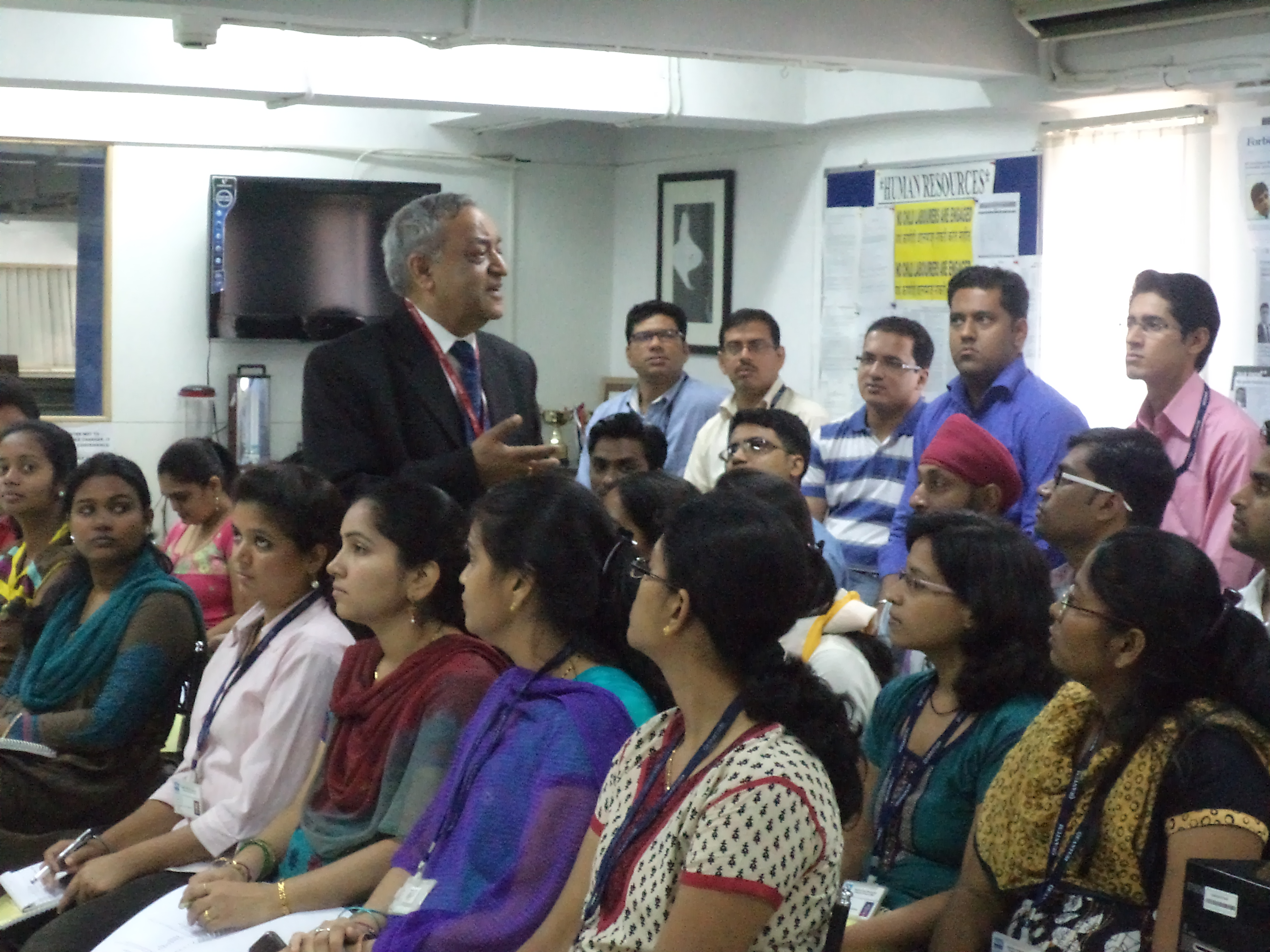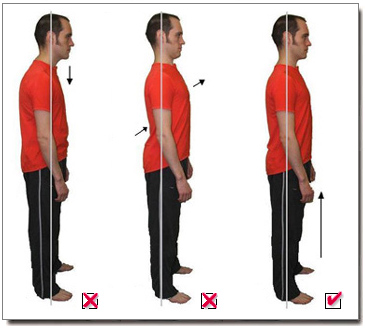We have seen, in our earlier post, the functions of jaw. Today, we shall look at functions/ importance of other speech organs i.e. lips, tongue, teeth and palate.
Lips: Sound of consonants like b, P and M cannot he appropriately produced unless we use lips correctly. Wani yoga puts on the right path to create correct sound of each of these consonants. The exercises for the lips make the lips very flexible. The power of discipline (yoga) in this case also lies in making us active listeners to our own speech. When we listen to the words spoken by us and identify inadequacies, the repetitive process of these exercises reminds the mind of the inadequacies. In turn a revised stimulus (instruction) is sent by the brain to the lips which make the correct movements that result in producing the right sounds.
In order to practically observe the clarity of the words requiring effective movement of the lips, you may try to say the following sentence without touching your lips.
Please pack the pickles and post the parcel.
You will not be able to say the above sentence in an articulate manner unless you press your lips a little.
Similarly you may try to speak the following sentence clearly and observe. This will require slightly different overall formation of the lips to speak the same clearly:
Many moaning man were making music to the moon.
Tomorrow, we will discuss the, next speech organ. And, you must always keep in mind that practitioners of ‘Wani Yoga’ always ensure that they speak clearly.
Month: March 2013
Wani Yoga – lesson 5
Throat Chakra is instrumental in creation of our ‘Wani’ (Speech). In my last post, we discussed indications of its imbalance and the benefits and necessity of balancing it. In this post I will talk to you about how to balance the Throat Chakra?
Exercise One:
The first step is to reinforce in your mind that speech is a very important part of your personality today as it never was in earlier times.
Step Two: Whether you are sitting on a chair or on the floor, keep your spine straight. Close your eyes and concentrate on your breath. Take deep breaths. Keep your eyes closed for better concentration.
Step Three: Keep your teeth apart with lips placed on each other (without pressing). Hum the sound of m m mmmmmm…….. smoothly. Repeat thrice.
Step Four: Keeping your eyes closed raise your chin gradually to the extent you can. And then bring it down gradually. While raising your chin and exhale while trying it down. Repeat thrice.
Exercise Two:
- Take your shoulders up slowly while inhaling to the count of five.
- Keeping your shoulders up hold your breath to the count of three.
- Bring your shoulder down while exhaling to the count of five.
Repeat it 3 times.
Exercise No Three:
- Close your eyes and inhale to the count of 5.
- Open your jaw stretch as much as you can.
- With rounded lips and a mall opening produce the sound of AUM. Take it as long as you can.
Repeat it 3 times.
You may do these exercises at any time. It is important to keep your mind relaxed and focused. Desire to important your virtual, written and creative expression. Follow the simple principle- Act, never react in your communication, verbal or written.
You may be expressing yourself in any language, but you must work to improve your language in case of any deficiency. Improvement has no limits.
How do you improve your language?
Follow these simple rules.
- Simple language is the best form of expression.
- Use profession jargon only when necessary.
- Use short sentences unless you are adept in speaking/writing long sentences with multiple clauses.
Furthermore, keep enriching your active vocabulary by adding one or two words of your choice daily. But you must use these in your communications.
Communication session in progress
Wani Yoga
Wani yoga is the most practical form of yoga. Its benefits are immense. Above all, Wani yoga does not require you to sit on the ground or lie on the mat. The practices and the exercises can be carried out at home in office or even while travelling. In fact, it teaches us that you can draw the benefits of meditation by practicing Wani yoga throughout the day.
What is Wani yoga?
It is the discipline that controls your psyche and improves your health constantly. We use ‘Wani’ i.e. ‘Speech’ right from the morning when we get up and until we sleep at night.
How do we speak? First, the thought comes in our mind. Then we translate the thought into the language; there after the brain sends a signal to our lungs. Some breath is released. That breath strikers the vocal cord. Sound is produced. This sound travels in the cavities of mouth and the. Resonance is added to the sound and it becomes rich. But until then it is only sound and not the words.
So, how are the words created? The words are created by the speech organs. We have five immaculate speech organs. These are- jaw, tongue, teeth, lips and palate. Their functions as follows:
Jaw: It enables us to speak clearly by using the other four speech organs. Some people do not open their mouth i.e. they don’t use jaw adequately. Their speech can never be clear. So, we need to use our jaw adequately. Simple yogic exercises make our jaw nimble and flexible. Wani (Speech) can have a great power with the power of Wani Yoga which enables us to appreciate the need, and encourages us to use the speech organs. And, as we speak throughout the day our yogic exercise of the jaw continues throughout the day whenever we speak.
Tomorrow, I shall talk about how we use the other speech organs to derive the real power of the special yogic practice called ‘Wani Yoga’.
Self Esteem
What is Self Esteem? Self-esteem refers to the person’s self-belief. It embodies how a person rates himself. If you rate yourself high and respect yourself, people will also respect you. At the same time if you are casual about your personality, people will take you for granted. When people take you for granted and do not care for you, you self-esteem suffers further. You start considering that you are insignificant. It is necessary that you have to always ensure that people respect your opinions.
If you do not know about something the best thing is that don’t give your opinion and accept that your knowledge on the subject is not enough to form an opinion. However if you know the subject and have an opinion and your opponent does agree, never argue. The best thing is to say that we agree to disagree. Let the matter rest there.
When you are attending a meeting or a conference, you must participate actively. Remaining a mute listener will affect your self-esteem. Before attending the meeting it is necessary to collect your thoughts on the subject so that you are well equipped to participate. In the meeting you should be an active listener. It is only when you listen to the speakers that you can express your own view.
You should not interrupt somebody’s argument. If you are alert you will find a space where you can intervene and try to express yourself in a fashion that nobody is offended. But the participants genuinely consider your views.
However self-esteem is not only about communication. You taking care of your health, your clothes, the way you carry yourself all are important. In order to make a mark in the society and establish your place it is important to keep you self esteem high.
Stage Fright
Stage Fright is a much used term these days. In fact, almost every professional is required to design and deliver powerful presentations while confidently facing the audience. The basic question remains – What is Stage Fright? And how does one overcome it?
Stage Fright begins with certain overt and physical symptoms. These include trembling of the hands, quavering of the legs, dryness of the throat, or just a feeling of the mind going completely blank. One needs to understand that these are only early signs of stage fright. If stage fright is controlled in its early stage it can be prevented from transforming itself into a strong and very real fear of the audience. In fact the speaker must take positive steps to overcome this situation. Here is what can be done:
- Prepare: This is the first and most important way to overcome stage fright. Inadequate preparation is in fact an invitation to stage fright. Never make a presentation without full preparation.
- Practice: It is said practice makes perfect. Practice is that part of preparation, where the presenter not only creates a beautiful PowerPoint – but he also well rehearses it before an imaginary audience. In fact, good presenters anticipate and answer all sorts of questions to fully prepare themselves.
- Focus on the opening: Well begun is half done. Since stage fright is generally at its maximum in the beginning, a good opening will ensure that you catch the audience interest and attention. That will do work wonders with your confidence.
- Interest in the subject matter: A speaker must have strong interest in his subject. Any speaker who is disinterested or half-hearted, can hardly expect his audience to listen to him intently.
- Shift focus of attention: Some presenters are always worried about doing a good job at the presentation. Rather the speaker should focus on the audience’s requirements. What do they need? Why have they gathered to hear him speak? How are they responding to his communication? A positive focus on these questions will enable him to gain greater confidence as the presentation rolls along.
Someone has said that stage fright and confidence are two sides of the same coin. You turn one and the other appears. So the next time you are feeling a little nervous, tell yourself your feeling confident, and believe me you may quite be able to work things out. Remember, it only takes one really good presentation to take your communication skills to the level of a public speaker.
'Kartaar de Cholay'

I have vivid memories of my early childhood. My visits to the holy city of Amritsar were incomplete without a visit to the old part of the city for savoring the delicacies and specialties that are unique to the city of Amritsar.
I recently visited the city again after a gap of more than 30 years. On the first morning of my trip I paid respects at the Golden Temple and remembered our martyrs and freedom fighters at Jallianwala Bagh. Thereafter, the thought of having “Pippe de cholay (pronounced at ‘peepay day cholay’) suddenly came to mind. A ‘Pippa’ is an aluminium container that contains cooked Cholay (Channa/Gram) and is served hot along with special Amritsar Kulchas. It brought back memories of the distinct taste of this fine recipe which I had last savored several years back.
My wife’s Aunt (from Amritsar) took us to the city’s main shopping market. There I was introduced to Kartar’s Singh’s grandson. A jovial and rather amiable person in his fifties, he was quite happy to narrate tales for his trade. He is a third generation cholay vendor (his grandfather started the business) and has been selling the famous Kartaar de Cholay at the same spot since his teens. He talked about changing times – the city, his clientele, prices of his cholay. But the one thing that stayed the same was the taste of his patented recipe. This according to him was the main thing that brought customers back to his stall. Here he is in action, doing the one thing he really loves… and the people love him for what he offers.
Posture
Posture
Posture is a very important part of your personality. It’s necessary to develop an elegant posture- while standing, walking or even sitting. If the posture is not correct the breathing is also affected. It becomes shallow. Shallow breathing is not good for speech. The voice is impaired and becomes feeble. So even from the point of view of effective communication, good posture is a must. Recommended standing position of an elegant posture is described below:
- The feet may be slightly apart.
- The general disposition of the weight should be slightly forwards.
- The pelvis should be above the instep.
- The torso should be directly above the pelvis; neither in front of nor behind it.
- The abdominal muscles should feel braced without tension.
- The torso should feel raised, but not stretched, away from the pelvis.
- The shoulders should be directly above the pelvis and should be in line with the breastbone at the front.
- The head should feel well balanced immediately above the shoulders. It should be neither in advance of them nor behind them.
- The chain should be in a medical position, neither showing the underside of the jaw, nor pulled back allowing a ‘double-chin’ to form.
Developing ability to say ‘No’
Developing ability to say ‘No’
Often times, we are scared to say ‘no’ even if we want to, even if we need to.
Suppose a friend asks you for ‘help’ to complete a project. You know that you are extremely busy and you don’t have the time for the ‘help’ requested. Being scared of offending a friend you just accept the request without proper thinking. This is lack of ‘assertiveness’. It will lead to a greater problem when the relevant time comes. If you help, you will consider in your mind that your friend is inconsiderate because your own work is suffering. If you don’t, your friend will be upset because you have gone back from your commitment and let him/her down.
So, what should you do?
Develop assertiveness. It’s developing your ability to say ‘no’ when you need to say ‘no’. But you have to say it in a manner that it does not offend your friend. You must use your language and articulate your inability in such words and such tone that your friend appreciates your position rather than feeling upset. The same holds good for your colleagues in office and others.
Act never React!
3 Magical Words that can change you life. What do these words mean? Simply stated these mean that your words must simply stated these mean that you must always remain composed – Never exceedingly happy, and never heavily sad.
Never react to a person, nor to any situation. It may so happen that someone has told you something which he or she should not have said. You may become angry and give it back in the same coin. But that will not solve the problem. It will aggravate it. Then what should you do? Should you take things lying down? No! Yet, you must practice to remain composed and ask your mind what you should do? You will mind will surely respond. You will be able to say such words ‘cooly’ to your opponent that will work out to be a befitting response. The person will never dare to insult you again. Is it easy to acquire such strength in character? No it is not. But, it is quite possible by consistently reminding yourself that you must never ever react. You should ‘act’ instead. Asking your mind is in fact your ‘action’.
We must all remember that when we ‘act’, we use our mind. But when we ‘react’, we lose our mind. Using the mind is surely a better alternative. Your mind provides you with ample opportunities to overcome difficult, indeed very difficult situations. It is worth becoming adept in using your mind gainfully, always
‘Voice Modulation’
We hear a lot about voice modulation in the age of public presentations.
What is modulation? And why is it so important?
Voice Modulation is your ability, rather, talent to bring in variance in pace, pause, pitch, emphasis on the key word and the tone. Unless you modulate your voice while speaking to a group or even a lone listener, the chances are that you speech will not be effective at all. We have often seen some members of the audience dozing away while the speaker continues his/her speech. Now, I will explain- pace, pause, pitch, emphasis on the key word and the tone.
Pace: if you speak very fast you will not be understood but, if you speak very slowly you tend to become dull and listeners will not like to listen to you. However, when you speak with a medium speech, though audience can understand you but the same pace of your words will render your speech monotonous.
Pause: Just as in written text you have coma, full stop, paragraph and other punctuation marks, your speech too must reflect the same by means of pauses of different durations. This will make the speech effective.
Pitch: It is the note on which you speak. While attending a solemn meeting you cannot speak on higher pitch. But at the same time if the commentator of a football match speaks at a low pitch, nobody will like to listen to him.
Emphasis on the key word: Just as you get unwanted results if you Google a wrong key word, different meaning will be conveyed by the same sentence when you emphasis a wrong word.
Tone: Tone is most dicey. It is easy to control the words and the sentences. But it is very difficult to control the tone. Tone represents the emotions with which you speak. Often times, due to inappropriate tone the speaker lands into trouble.


